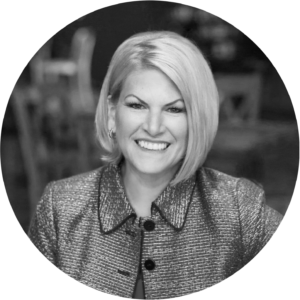Lisa Nichols, CEO
Embracing A Growth Mindset
I probably don’t have to convince you that having a growth mindset is important; however, I endeavor to build a case that it might be one of the most foundational concepts that we, as people, should focus on.
It affects everything. We can have a high IQ with intellectual smarts that rival Harvard MBA’s; we can have a high EQ that allows us to be social geniuses; but if we have a high GQ, (and I am not referring to Gentlemen’s Quarterly), we can be a better version of ourselves every day. I am talking about having a high and healthy Growth Quotient (GQ).
So, if you think you might be interested in taking ownership of your Growth Quotient, you are probably wondering where to start. I do not propose to be an authority on this subject since I am still on this continuous journey, just as you are. However, I will share a few of my thoughts.
Taking Ownership of Your Growth Quotient.
Set aside alone time
What are the activities that should be a part of our “alone time”? I believe that a great place to renew our minds daily is with good reading (or listening) and reflection. If you are like me, your inbox is flooded with various blogs, articles, coaching materials, daily insights, motivational nuggets, invites to webinars and so on. If I took the time to read or participate in every suggestion that comes across my desk each day, I wouldn’t get anything else done. Darren Hardy says we have to relentlessly fight against “digital addiction”. I couldn’t agree more. It is truly a matter of prioritization.
One of my routines is journaling. There are so many things constantly swimming around in my head, if I don’t write them down – I will forget and then it is like every day is Groundhog Day. I think if we can build some clarity into our thinking – by boiling down these lessons into understandable principles and then writing them down, it helps us grow. I always keep my journal close by when I am reading the Bible, reading any great book, listening to a podcast or listening to a lecture. Journaling doesn’t have to be complicated. In fact, it is a very simple discipline with exponential benefits such as helping you boil your experiences down into new learnings, sharpening your memory, providing proof of progress and growth, improving clarity around your thinking and increasing your gratitude. Many distinguished people throughout history have used journaling to help them grow personally.
Assess where you are
Some of you may have read books written by Priscilla Shirer. She gives a great illustration of her 3-year-old son who stays home with her during the day while her older children are at school. Her young son loves Duplos – the larger version of Legos. She said that one of his favorite things to do is to sit in his room with her and build towers.
As with many 3-year-olds, her son has a very short attention span. As they build a tall tower, he will hear something or get distracted and run off. She has learned to sit and wait … because she knows that he will be back in two minutes. What she noticed is that every time he would return, he would begin building a brand-new tower instead of continuing to build upon the tower that they were already working on. Her point is this – how many times do we do the same thing as it relates to who we are becoming? Every experience, every victory, every hurt, every disappointment, and struggle should be used to grow us. ” She says, “We should NOT enter chapter 7 of our life the same person that we were in Chapter 6.” We need to continue to build on Chapter 6 to be a better version of ourselves in Chapter 7. Are we taking the time to evaluate Chapter 6 and determine our learnings from that chapter? This is what it means to move the needle on your Growth Quotient (GQ).
Build out your life-plan
I recently discovered “Living Forward”, one of Michael Hyatt’s many books. It lays out a framework to build what Michael and co-author Daniel Harkavy call a Life Plan. I have heard about and read several versions of this over the years, but never have I ran across a framework so simple yet thorough. They lay out not just the why of a life plan, but how to tactically build out this plan for yourself. When we plan a vacation, how do we start? With the destination in mind. Once the destination is chosen, that guides how we will get there, what we pack, what accommodations we will need, and the activities we will enjoy once there. If we are visiting a foreign country, it might prompt us to learn or grow stronger in that country’s language.
The same should be true for our lives. In each of the major areas of our life (Michael and Daniel call them Life Accounts), how do we want those to end up? What are the outcomes we desire for our faith, ourselves, our marriage, our children, our friends, our careers, our finances, and our communities? I don’t know about you, but I don’t want to end up somewhere that I really don’t want to be. The Life Plan can be the rudder for our ship.
Get moving
Make no mistake – growth can be painful. Our six-year-old grandson, Sawyer, has been waking up at night complaining about his little legs. My daughter, Paige, gets up with him and puts him in a warm bath to soothe the ache. He is experiencing growing pains. While this can be extremely uncomfortable, it is necessary for his bones and frame to continue in this miraculous process, so that he can grow into a strong man one day. This is where the rubber hits the road. Many people live life with good intentions – yet no action. Personally, I have to fight against this all the time. It does no good to build out your Life Plan and then never execute on any of it.
We often think we need to make quantum leaps when what we may actually need to do is change or improve only one small step at a time. Do not get discouraged when you don’t have immediate growth in every situation. Growth isn’t always consistent, but it must be evident in measurable increments.
Share what you know
One of the most impactful ways that I have continued to grow is through the lives of other people who have shared their personal stories with me. I will usually take away a nugget from every person I meet. You can learn how others have handled various challenges and then add that to your toolbox for the next time you encounter a similar challenge. Or maybe you notice how they make you feel when you are around them and you resolve to be more like them – or not. J As I always say when I talk about everyone’s “something extra”, a gift unopened is of no value. When we learn something new or move the needle on our GQ, we should be sharing that change with others so that they, too, can benefit from what we have learned.






